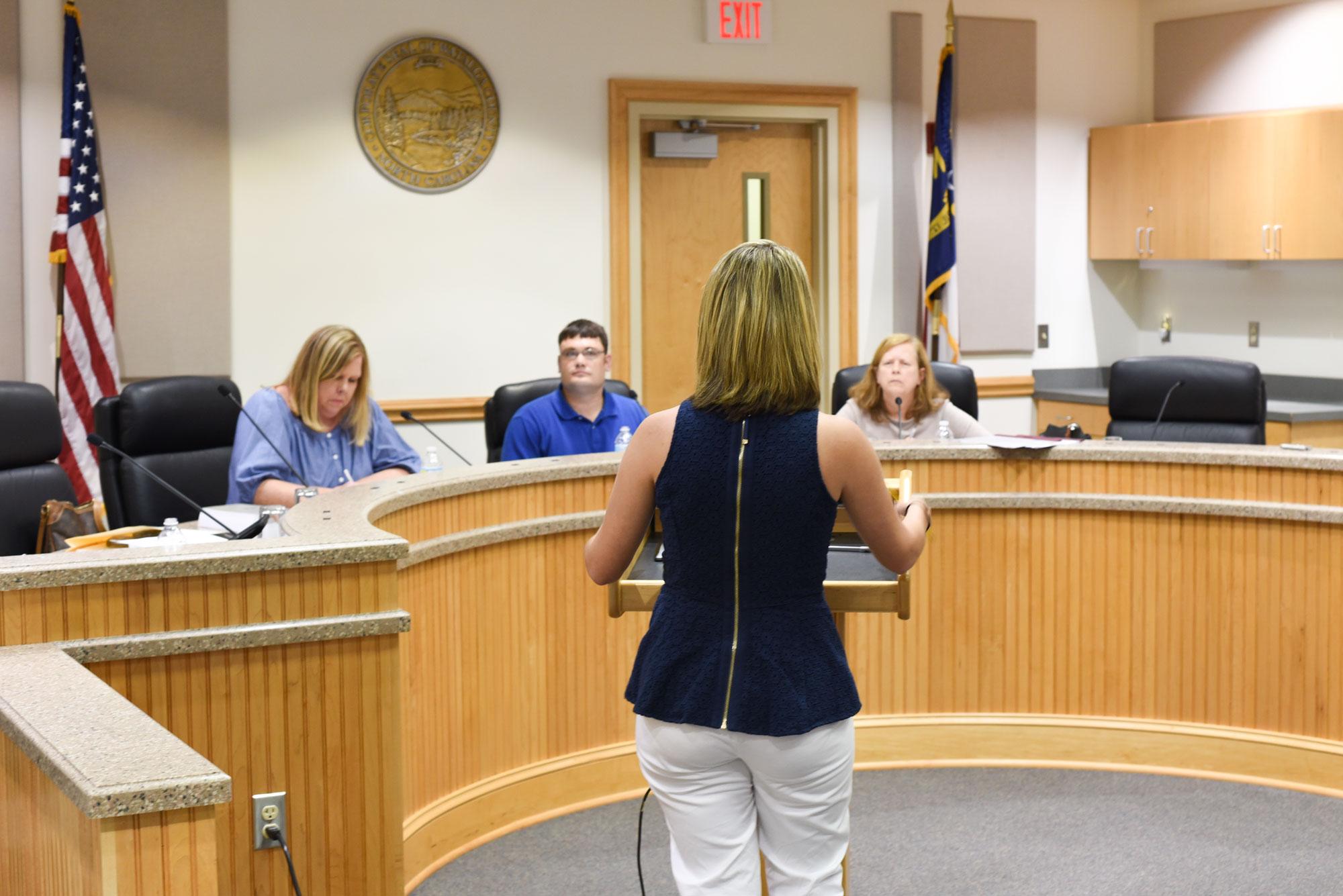On Tuesday, Aug. 22, the Watauga Board of Elections voted to determine whether the Plemmons Student Union would be made an early voting site for the 2017 municipal election.
Support for its use as a voting site included both students and permanent residents of Boone coming out to the meeting.
Representatives from such groups as the Watauga County Voting Rights Task Force (WCVRTF), the Appalachian State Student Government Association and the community at large gave impassioned speeches advocating for the use of the PSU.
But despite the town of Boone’s proposal to fully fund the site, the vote, which should have been a simple and resounding “yes,” ended with a rather frustrating “no.”
Only one “no” that is, as both Stella Anderson, a democrat, and Nancy Owen, a republican voted yes, while Bill Aceto, a republican, cast the only “no.”
Aceto’s “no” was able to kill the vote as the board needed a unanimous decision to be able to move forward with the plan.
A member of the board since June 2013, Aceto has a history of voting against the use of the PSU, having voted against it every year since joining the board.
During the proceedings Aceto tried to justify his desire not to use the site by claiming that the “numbers” did not support the use of the PSU, and therefore he could not vote for it.
In response to this, Anderson had a biting retort. “Well it seems to me Bill, I think the record should reflect, regardless of the election you’ve never thought it was warranted, regardless of the numbers,” Anderson said.
After the meeting, Pam Williamson, a member of the WCVRTF said this about Aceto, “When it comes to this issue, Bill has always been against any voting opportunities for young people, for minorities and for Democrats. And there is tons of record on that in the courts, and state board of elections and here locally.”
Ironically, earlier in the meeting Aceto said that, “I think politicians should not be picking the voting sites I think it should be an independent nonpartisan commission.” A statement met with laughter by many of the people in attendance.
Had there been a different outcome, the proceedings would have been rather entertaining.
While Anderson and Owen were having a serious discussion about the logistics of using the PSU, Aceto spent his time grasping at reasons to deny its use, much in the way a petulant child attempts to find a way out of eating vegetables.
In the past Anderson has successfully petitioned the state board about the use of the PSU for early voting, but this year that may not work as right now the board doesn’t exist.
This is because the republican state legislature tried to change how the board is formed. Classically it had three members of the governor’s party and two of the opposing party, but after the election of Roy Cooper they attempted to make it two and two.
Until the lawsuit that Cooper levied against the change is decided on Aug. 28, the state board won’t be able to intervene.
So as of right now, the chances of the PSU being used for early voting seem slim at best.
“So what?” Some may ask, “It’s only a municipal election, there’s no reason for me to vote, why is this outcome so important?”
When asked some thing akin to this, Student Body President Anderson Clayton had this to say, “You should care because it’s basically an infringement on your constitutional say in what goes on around you, and what goes on above you basically within higher power.”
Clayton then went on to say, “National politics is really really cool to watch on tv and they’re really interesting, but it’s your local politics that really put the impact where it’s meant to be.”
She’s right, Congress has nothing to do with the Watauga ordinance that arbitrarily decides what constitutes a brothel, the president can’t establish a curfew for Appalachian students, but members of the municipality do.
That’s why the students of Appalachian should care about this, because their ability to decide matters on a local level is being stifled.
It’s voter suppression at it’s most basic form, but more than that, it’s a local example of how our political system has been corrupted.
Aceto is a simplistic, almost childish representation of republican attempts at voter suppression and of attempting to use the system to go against the majority.
It’s utterly ridiculous that one man with a contrary agenda should be able to go against the wishes of his constituents.
This vote could set a dangerous precedent going forward, as next year the board might decide that since it wasn’t “needed” this year, it won’t be “needed” next year.
So do something, get angry, say something, but above all participate, before you lose the ability to.
Q Russell is a junior journalism major from Charlotte, NC. Follow him on Twitter at @Q_M_Russell
Photo By: Halle Keighton, Photo Editor

